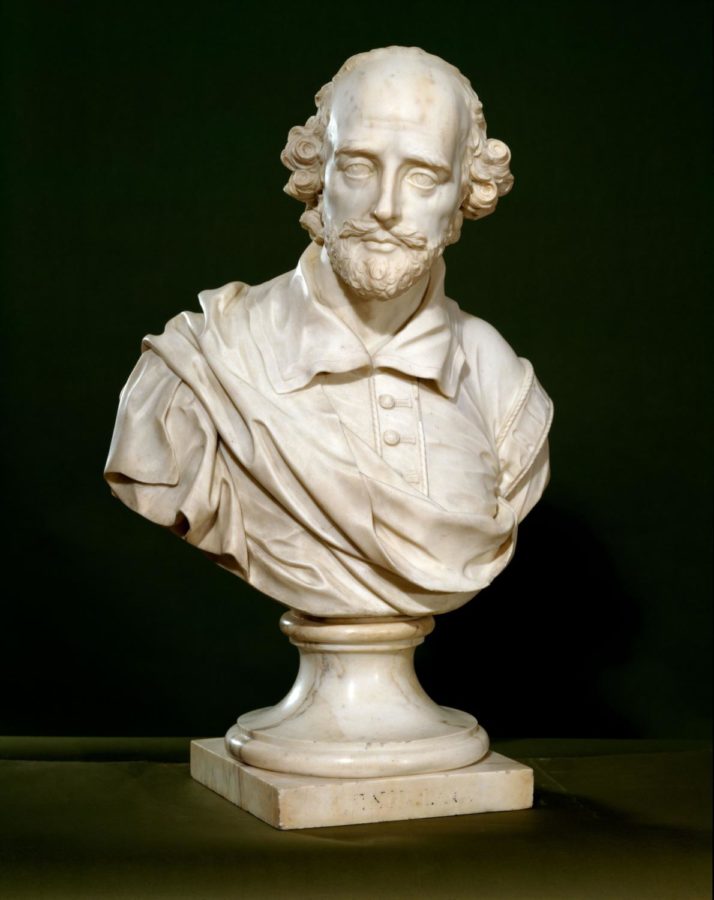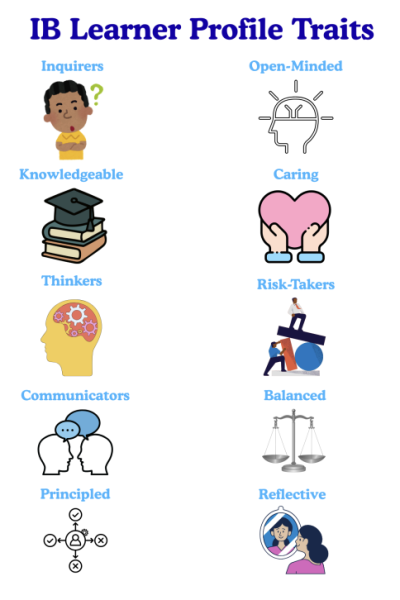Beautiful or Blah: The Taketh on Shakespeare
To Like or Not to Like Shakespeare: That Is the Question
March is a month reminiscent of many things–the beginning of spring, flowers, sunshine and the brutal murder of Julius Caesar at the hands of his supposed buddies. As transcribed within “The Tragedy of Julius Caesar,” Caesar’s death is one of many iconic moments chronicled by none other than one of the world’s most famous playwrights, William Shakespeare. Despite the centuries since his passing, his works are celebrated today and have been integrated into many school curriculums.
“I’ve been teaching Shakespeare my whole career. There are so many aspects to his poetry and his drama that we don’t realize in the way we speak, the terminology that we use and even in character archetypes,” Dr. Roger Baskin said. “Giving students an opportunity to get some exposure to Shakespeare is important because as they move beyond school, they’ll hear these phrases and allusions that all goes to a lot of Shakespearean writing.”
Shakespeare is undoubtedly one of the most influential writers in history, and one can see his influence not only in the academic world, but also in popular culture. He pioneered the star-crossed lovers’ trope and inspired the concepts behind many television shows, including “Breaking Bad” and “Game of Thrones.” The themes of power, fate and love, which appear readily within modern media, were some of the elements of Shakespeare’s writings studied by students in class. Students also read a variety of Shakespearean works, including “Romeo and Juliet,” “Henry the Fourth” and “Julius Caesar.”
“It was interesting to learn about Shakespeare himself, what he added to the English language, and looking at his writing in general,” sophomore Samantha Blaisdell said.
Students also studied Shakespeare’s writing structure, including his use of iambic pentameter and literary devices. Imagery and language techniques also feature a prominent part of Shakespeare’s works.
“I liked learning about the rhyme structure,” sophomore Cora McCabe said. “Obviously, he’s had a huge impact on modern literature.”
While certain parts of the Shakespeare learning experience were considered interesting, it generally was considered to be fairly tedious, especially because of how the curriculum focused on only one or two of his works during the year.
“I liked the imagery and that kind of thing, but I thought that it was weird that we spent half the year focusing on it,” McCabe said. “I would think it would have been better to spend a shorter unit on ‘Romeo and Juliet,’ and also learn about some of his other works.”
The lack of immersion in some lessons was also criticized.
“It was not very engaging,” Blaisdell said. “We were kind of just forced to read it. I would have liked it if we could have acted out the scenes instead of just sitting there.”
The learning experience varied relative to the teacher. While some classes involved reading the texts, others had more immersive and experiential lessons.
“I think it sometimes depends on the teacher’s exposure. In my class I really try to make sure that we have opportunities to move with the words because that makes it more engaging, more interesting,” Dr. Baskin said. “You do have to have some other aspects of teaching to make it accessible to kids.”
The overall experience for students was less than positive. However, students still retained interest in Shakespeare and his works, despite the less-than-exciting circumstances presented in the curriculum.
“I do not recommend it,” Blaisdell said. “There are places where you can actually watch the performance, which is far more interesting than reading it in high school.”
What did you think about this story? Do you have any suggestions for improvements or other articles that you would like to see? Please use the contact form to communicate with us! (Keep all information school-appropriate)
https://docs.google.com/forms/d/e/1FAIpQLSeRYRWwLLzvs2rqwHSGdr-DQRvxhUSx9UcaXypXxnvVuCqwyA/viewform











